In the world of shipping, safeguarding your goods during transit is mandatory. This is where cargo insurance steps in as a critical shield. Imagine the frustration and financial loss if your shipment gets damaged, lost, or stolen. Cargo insurance is a vital risk management tool that every business involved in shipping should understand and utilize. It protects your valuable cargo and ensures peace of mind, knowing you’re covered against unforeseen mishaps.
This article will explain what is cargo insurance and its importance, explore the different types available, discuss various cargo policies, and highlight its numerous benefits. Whether you’re new to shipping or a seasoned pro, understanding cargo insurance is essential for protecting your investments and ensuring smooth operations.
What is Cargo Insurance, and What’s its Purpose in the Logistics Sector?
Cargo insurance is a type of policy designed to protect goods in transit. It covers the risk of physical loss or damage to goods during shipping, whether by land, sea, or air. This insurance protects shippers financially, ensuring they can recover their goods’ value if an unexpected event occurs.
Purpose in the Logistics Sector:
The worldwide cargo insurance sector was valued at $71.4 billion in 2022 and is expected to grow to $106 billion by 2032. This significant valuation and projected growth of the worldwide cargo insurance sector highlight its crucial role in the logistics industry
Let’s understand the purpose in detail:
1. Risk Mitigation: Cargo insurance is a critical risk management tool. It helps businesses reduce the financial impact of unforeseen events, accidents, natural disasters, or theft while transporting goods.
2. Financial Protection: Cargo insurance provides a safety net for businesses. It ensures they are not left bearing the full cost of lost or damaged goods. This financial protection is essential for maintaining cash flow and profitability, especially when dealing with high-value shipments.
3. Enhancing Business Credibility: Having cargo insurance enhances a company’s credibility and reliability in the eyes of clients and partners. It demonstrates a commitment to safeguarding shipments, which can be a significant selling point in the competitive logistics sector.
4. Smooth Operations: By covering potential losses, cargo insurance ensures business operations can continue smoothly even during a mishap. Companies can quickly recover and fulfill contractual obligations without significant delays or financial strain.
5. Legal and Contractual Compliance: In many cases, cargo insurance is required by law or by contractual agreements with clients and partners. Ensuring compliance with these requirements protects businesses from legal disputes and financial penalties.
Cargo insurance is essential for any business involved in shipping goods. It provides financial protection, supports smooth operations, enhances credibility, and ensures legal and contractual obligations compliance.
Cargo Insurance vs Carrier Liability
Before comparing career liability and cargo insurance, let us understand what career liability is.
Carrier liability is a transportation carrier’s legal duty for the damage, loss, or delay of goods while in transit. This liability is typically limited by international conventions, national laws, or contractual agreements, meaning that the carrier is only liable for a specific amount per kilogram or package, regardless of the actual value of the goods.
Difference Between Cargo Insurance and Carrier Liability
1. Coverage Scope:
- Cargo Insurance: Provides comprehensive coverage for the full value of the goods, protecting against numerous risks, including natural disasters, theft, damage, and loss.
- Carrier Liability: Offers limited coverage, often with a cap on the amount that can be claimed, and may not cover all the losses or damages.
2. Financial Protection:
- Cargo Insurance: Ensures that the shipper is fully compensated for the value of the goods, minimizing financial loss and impact on the business.
- Carrier Liability: This may result in significant financial loss if the capped liability amount is much lower than the actual value of the goods.
3. Claim Process:
- Cargo Insurance: Typically, the claims process is straightforward, and the insurer compensates the shipper directly for the loss or damage.
- Carrier Liability: Freight claims must be made within nine months following delivery.
4. Control and Flexibility:
- Cargo Insurance: Shippers can choose the level of coverage they need, including additional protections for specific risks, offering more control and flexibility.
- Carrier Liability: Coverage is dictated by the carrier’s terms and conditions, international conventions, or national laws, limiting shippers’ flexibility.
In summary, while carrier liability offers a basic level of protection, it is often limited and needs more for high-value or sensitive shipments. Cargo insurance provides comprehensive coverage, ensuring businesses can safeguard their goods and financial interests more effectively.
The Importance of Cargo Insurance
Cargo insurance holds a major credibility in the logistics and shipping industry. Here are some key reasons why cargo insurance is important:
1. Protection and Coverage for a Wide Range of Risks
The primary benefit of cargo insurance is financial security. Shipping exposes cargo to various risks, from accidents and theft to natural disasters. Without insurance, absorbing the cost of lost or damaged goods can be devastating, impacting cash flow and potentially hindering operations. Cargo insurance acts as a buffer, reimbursing businesses for covered losses, and allowing them to recover financially.
2. Legal and Contractual Compliance
Legal or contractual agreements with clients and partners often require cargo insurance. Ensuring compliance with these requirements protects businesses from legal disputes and financial penalties.
3. Protection Against Carrier Limitations
Carrier liability often provides limited coverage, which needs to be improved for high-value goods. Cargo insurance ensures full coverage, safeguarding the actual value of the goods against potential losses.
4. Flexibility in Coverage
Cargo insurance policies can be adapted to specific needs, providing flexible coverage alternatives. Businesses can select the amount of protection that best fits their cargo and transportation routes.
Types of Cargo Insurance: Land, Marine, and Air
We have covered what is cargo insurance; now, let’s understand the different types. Each type of insurance is aimed to handle specific risks associated with various modes of transportation. Here are the main types of cargo insurance:
1. Land Cargo Insurance
Land Cargo Insurance covers risks related to domestic road transportation. It protects goods being transported by trucks or trains within a country. This type of insurance is important for businesses that rely on overland shipping to move their products from one location to another.
Coverage Includes:
- Accidents: Protection against damages from traffic accidents.
- Theft and Vandalism: Coverage for stolen or vandalized goods during transit.
- Natural Disasters: Protection against damages from floods, earthquakes, and other natural events.
Key Benefits:
- Ensures financial protection against common overland transportation risks.
- Having land cargo insurance helps businesses meet legal and contractual obligations.
2. Marine Cargo Insurance
Marine Cargo Insurance is designed for international shipments via sea. It covers many risks associated with sea transportation, including weather-related damages, piracy, and other maritime incidents. This insurance is vital for businesses involved in global trade, ensuring their goods are protected during long and potentially hazardous sea voyages.
Coverage Includes:
- Weather Damage: Protection against damages from storms, rough seas, and other weather-related events.
- Piracy and Theft: Coverage for losses due to piracy or theft at sea.
- Ship-Related Incidents: Protection against damages from ship collisions, sinking, or other maritime accidents.
Key Benefits:
- Comprehensive coverage for a variety of sea-related risks.
- Ensures the safety and financial protection of goods during international maritime transport.
3. Air Cargo Insurance
Air Cargo Insurance protects goods transported by air. It covers risks associated with air transportation, including damages from handling, in-flight turbulence, and other incidents unique to air travel. This type of insurance is essential for businesses that need to move goods quickly and safely across long distances.
Coverage Includes:
- In-Flight Damage: Protection against damages from turbulence, pressure changes, and other in-flight incidents.
- Handling Damage: Coverage for damages incurred during loading and unloading.
- Theft and Loss: Protection against theft or loss during air transit.
Key Benefits:
- Ensures comprehensive protection for high-value or time-sensitive goods.
- Provides peace of mind for businesses relying on fast and secure air transport.
By understanding and utilizing the appropriate type of cargo insurance, businesses can ensure that their goods are adequately protected during transit, regardless of the mode of transportation. This safeguards their financial interests and enhances their operational reliability and customer satisfaction.
Coverage Policies of Cargo Insurance
Cargo insurance offers various coverage policies for shipping needs and risk management strategies. Understanding these policies helps businesses choose the best protection for their goods. Here are the primary types of coverage policies in cargo insurance:
1. Single Coverage and Open Coverage Policies
A single coverage policy, or a voyage policy, ensures a specific shipment for a single trip. This type of policy is ideal for businesses that ship goods infrequently or have one-off shipments.
Key Features:
- Covers one specific shipment from the point of origin to the destination.
- Protects against specified risks during that particular voyage.
- Suitable for occasional shippers or unique, high-value shipments.
Open Coverage Policy: An open coverage policy, also known as an open cargo policy, provides ongoing coverage for multiple shipments over a specified period. This policy is beneficial for businesses that regularly ship goods.
Key Features:
- Covers all shipments made within the policy period, typically a year.
- Offers continuous protection without the need to arrange separate insurance for each shipment.
- Ideal for businesses with frequent or high-volume shipping activities.
2. Specialized Policies
Specialized policies include Free from Particular Average (FPA) and All-Risk coverage.
Free from Particular Average: A specialized policy provides limited coverage. It only covers losses in major incidents, such as total loss or specific large-scale damages.
Key Features:
- Covers major incidents like shipwrecks, collisions, or fires.
- Does not cover any partial loss or minor damage unless they result from a major incident.
- Suitable for low-risk shipments or cost-conscious shippers looking for basic coverage.
All-Risk Coverage: All-risk coverage is the most extensive cargo insurance policy. It includes all physical loss or damage to goods during transit, except for explicitly excluded risks.
Key Features:
- Covers numerous risks, including theft, damage, loss, and natural disasters.
- Provides the highest level of protection for goods in transit.
- Ideal for high-value or sensitive shipments requiring maximum security.
3. General Average
The General Average is a principle in marine insurance under which all parties involved in a maritime voyage (shipowner, cargo owners, and other stakeholders) share the financial burden of losses incurred from voluntary sacrifices to save the vessel and remaining cargo.
Key Features:
- This applies when intentional sacrifices are made, such as jettisoning cargo to prevent sinking.
- The total loss is proportionally distributed among all parties based on their respective cargo values.
- Ensures collective responsibility and shared financial risk in emergencies.
Calculating Cargo Insurance Cost
Understanding the costs associated with cargo insurance is crucial for businesses to budget effectively and ensure their goods are adequately protected during transit. Here are two key aspects of cargo insurance cost estimation:
1. General Approximation of Costs Associated with Cargo Insurance
Cargo insurance costs can vary based on several factors, including the kind of goods being shipped, the total cost, the mode of transportation, and the route. While it’s difficult to provide exact figures without specific details, here are some general guidelines:
- Type of Goods: High-value or fragile items typically incur higher insurance premiums. For example, electronics or luxury goods will cost more to insure than bulk commodities like grains.
- Mode of Transportation: Shipping by sea is usually cheaper than air freight due to the higher risk and value associated with air shipments.
- Shipping Route: Routes prone to piracy, severe weather, or political instability may incur higher insurance costs.
As a rough estimate, cargo insurance premiums generally range from 0.1% to 2% of the total value. However, this can vary depending on the factors above.
2. CIF (Cost, Insurance, and Freight) + 10% Formula for Calculating Insurance Costs
A common method for calculating cargo insurance costs is the CIF + 10% formula. This formula ensures that the insurance covers not just the value of the goods and freight charges but also an additional 10% to account for potential extra costs, such as handling or unforeseen expenses.
Formula:
Insurance Cost=CIF Value×(1+Insurance Rate)
Steps to Calculate:
1. Determine the CIF Value: CIF value is the sum of the cost of the goods, insurance, and freight. For instance, if the cost of goods is $50,000, freight charges are $5,000, and the insurance rate is 1%, the CIF value would be:
- CIF Value=Cost of Goods+Freight Charges
- CIF Value=$50,000+$5,000=$55,000
2. Calculate the Insurance Premium: Using the insurance rate (let’s assume 1%), apply it to the CIF value plus an additional 10% for extra coverage:
- Insurance Premium= $55,000 × (1+0.01 ) × 1 .1
- Insurance Premium= $55,000 × 1.01 × 1.1
- Insurance Premium= $55,000 ×1 .111
- Insurance Premium≈ $61,105
In this example, the insurance cost would be approximately $61,105, which includes the cost of goods, freight charges, insurance, and an additional 10% buffer for unforeseen costs.
By understanding the general cost factors and using the CIF + 10% formula, businesses can better estimate their cargo insurance expenses and ensure comprehensive shipment coverage.
What’s Included and Excluded in Cargo Insurance?
Cargo insurance provides comprehensive protection for goods during transit, covering many potential risks. This includes damages from vehicle accidents, natural disasters, theft, and other unforeseen incidents.
Additionally, cargo insurance often covers handling losses and extra expenses that may arise during shipping. This ensures that businesses are safeguarded against the financial impact of accidents, severe weather conditions, and criminal activities such as theft or piracy.
It has been researched that the most common causes of marine cargo insurance claims are accidents, weather, and theft/piracy.
The key benefits include:
- Vehicle Accidents: Coverage for damages resulting from traffic collisions or other road mishaps.
- Natural Disasters: Protection against losses caused by storms, floods, and earthquakes.
- Theft: Financial compensation for stolen goods during transit.
- Handling Losses: Coverage for damages incurred during the loading and unloading of goods.
- Additional Expenses: Inclusion of extra costs related to handling and unforeseen shipping-related expenses.
What Does Cargo Insurance Not Cover?
While cargo insurance offers extensive protection, there are some specific exclusions and limitations to be aware of. It mainly does not cover losses resulting from improper packaging (wear & tear), transportation mode restrictions, or the shipment of faulty products.
Additionally, cargo insurance policies may exclude coverage for certain shipments or pre-existing goods conditions. These exclusions help define the policy’s scope and ensure that insurers and insured parties know what is not covered.
Key exclusions and limitations include:
- Improper Packaging: Losses due to inadequate or inappropriate packaging are not covered.
- Transportation Mode Restrictions: Certain modes of transport may have specific exclusions.
- Faulty Products: Insurance does not cover goods that are already defective before shipping.
- Nature of Shipments: Some types of goods may be excluded based on their nature or value.
- Pre-existing Conditions: Damages or issues before the shipment should be covered.
By understanding what cargo insurance covers and what it does not, businesses can make informed decisions and ensure that their goods are secure during transit.
Conclusion
This comprehensive article has covered what is cargo insurance, its types, importance, and other aspects in detail. Cargo insurance ensures that businesses can safeguard their investments and maintain financial stability. Given the complexities and potential hazards of shipping, it is crucial to adopt cargo insurance policies tailored to the types and frequencies of your shipments.
For businesses looking to navigate the intricacies of cargo insurance, Intoglo offers door to door delivery of FCL shipments from origin to destination to meet your specific needs. Whether you’re shipping domestically or internationally, our expert team can help you select the appropriate coverage to protect your goods at every stage of your journey.


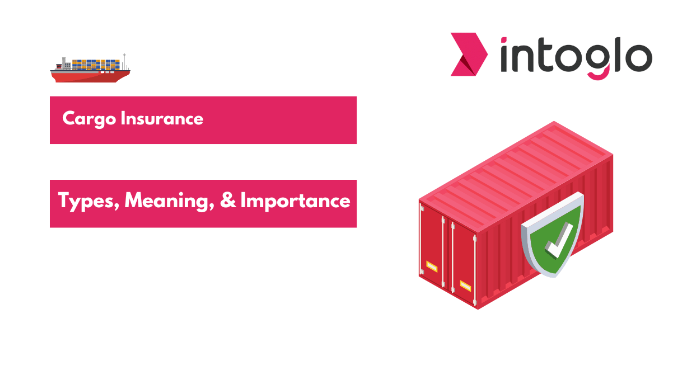


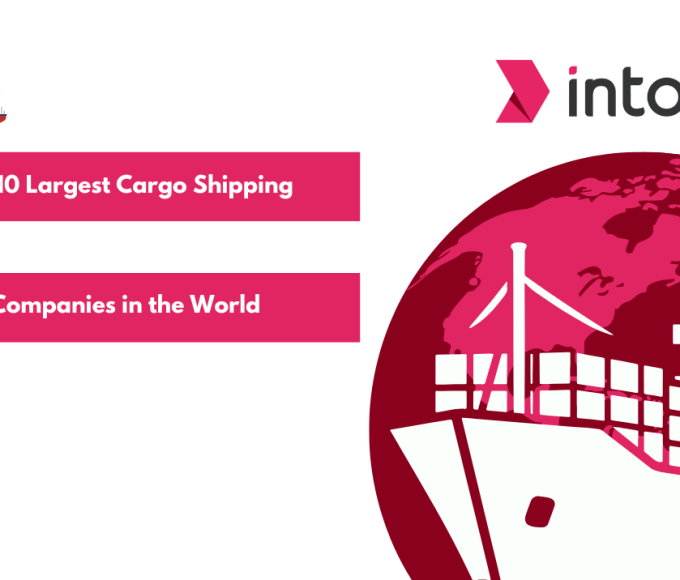
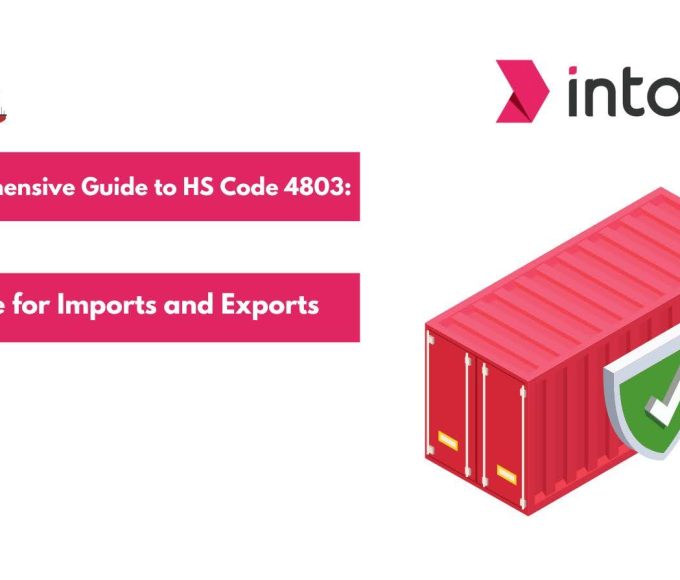
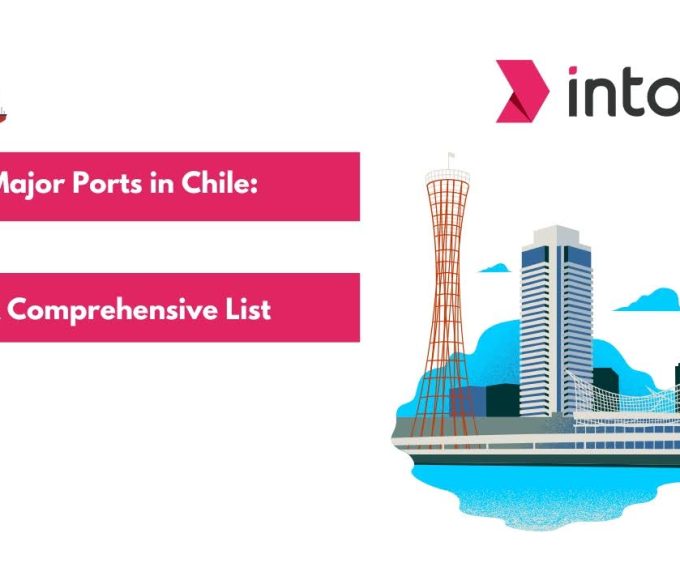
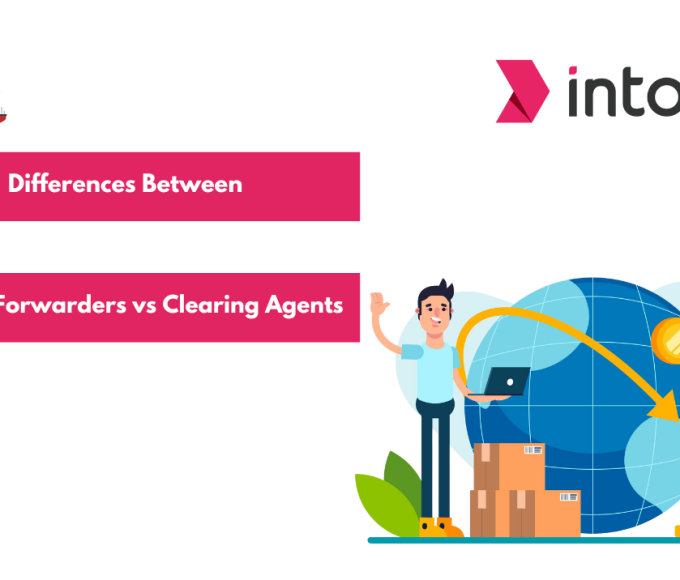
Leave a comment